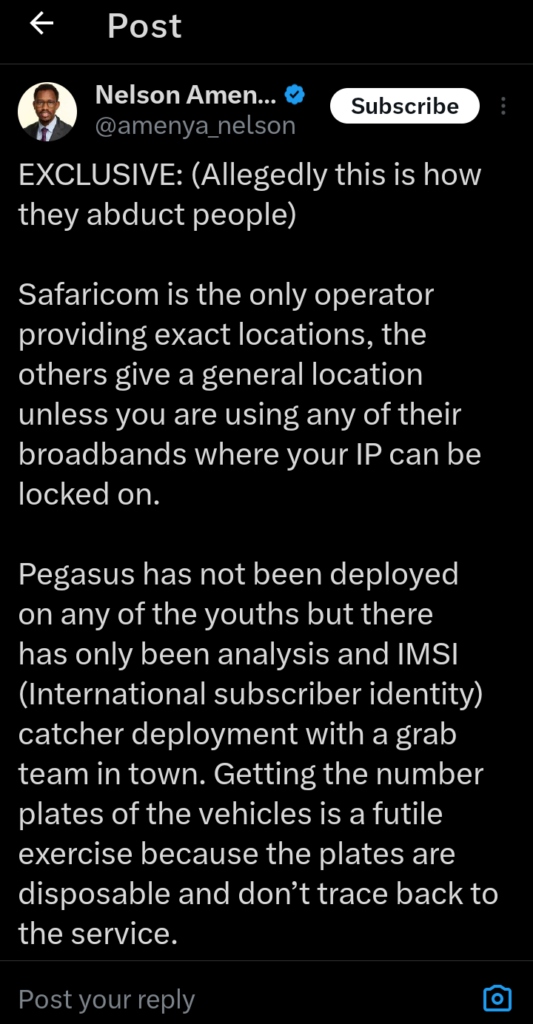Safaricom, a leading telecommunications company in Kenya, is facing growing allegations that tarnish its reputation and raise serious questions about its role in surveillance and alleged abductions.
According to reports circulating widely, Safaricom’s network is reportedly being misused to pinpoint individuals’ exact locations, potentially aiding in activities that violate human rights and privacy.
This precision allegedly makes it easier for unscrupulous actors to trace individuals, especially in urban settings where detailed location tracking can facilitate covert operations.

The process reportedly begins with acquiring a target’s phone number, followed by retrieving personal information such as ID numbers from government databases like the Registrar of Persons.
Other sensitive data, including health records from NHIF, tax details from KRA, and employment information, are allegedly accessed as part of the profiling process.
Such comprehensive data harvesting points to possible collusion with multiple entities, making the operation deeply concerning.
The claims further allege the use of IMSI catchers, devices that mimic cell towers to intercept communications and pinpoint individuals.
These fake towers trick nearby devices into connecting, allowing operators to isolate and track specific phone numbers to exact steps.
This method effectively overrides any attempts by individuals to remain discreet or safeguard their location, Safaricom’s alleged role in providing cell tower IDs for such operations places it squarely at the center of these controversies.
More troubling is the involvement of disposable number plates on vehicles used by the grab teams deployed for such activities.
This practice ensures that tracking these vehicles is almost impossible, leaving victims and their families without any recourse for justice.
Critics argue that Safaricom’s enabling of these operations, whether directly or indirectly, contributes to a system where accountability is non-existent.
Though Pegasus spyware has not been reportedly deployed in these cases, the reliance on IMSI catchers and advanced location tracking creates a chilling effect.
Individuals fear that their private lives could be intruded upon without any legal justification, with Safaricom’s technology being weaponized against them.
This undermines public trust in a company that markets itself as a champion of connectivity and innovation.
The alleged misuse of Safaricom’s network not only exposes glaring ethical lapses but also highlights systemic issues in data protection and governance.
If these claims are proven true, Safaricom risks losing the confidence of millions of Kenyans who rely on its services.
The need for transparency, accountability, and regulatory oversight has never been more urgent to prevent further erosion of public trust and to ensure that such technology is not abused for sinister purposes.





















Add Comment